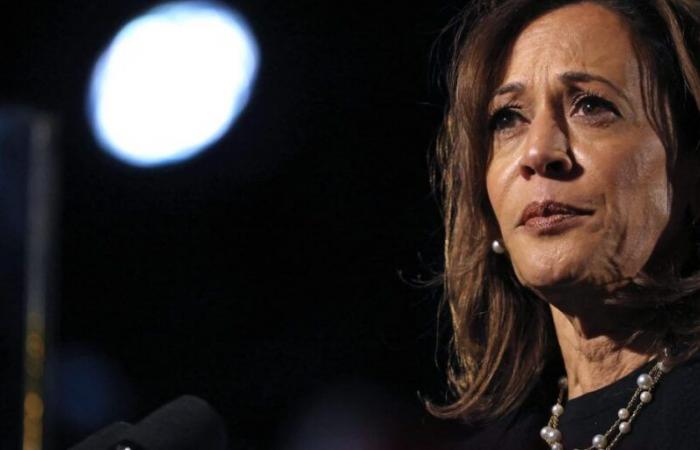Morning, readers—election results are in with a record for Black women in the Senate, voter support for abortion rights, and the election of Donald Trump over Kamala Harris. Thanks for being with us this morning.
– Making sense of it all. For the second time, Americans rejected the opportunity to elect the country’s first female president and sent Donald Trump to the Oval Office. This time the result was more resounding than in 2016—Trump won not just the electoral college over Kamala Harris, but 51% of the popular vote; eight years ago against Hillary Clinton, he won only 46% of the popular vote. Democrats lost the Senate, and Republicans are leading in the House of Representatives.
Already, the post-mortems are underway, and pundits and analysts blame a variety of factors for this outcome, starting with voter frustration with President Joe Biden and a failure of Harris’s campaign to separate her from the incumbent. Demographic results of note included a shift of Latino men toward the right and higher-than-expected support for Trump among young voters, especially young men.
I’ll let political analysts weigh in on the rest. For our purposes, the major questions are what comes next. A paradox of these election results is that while electing Trump, voters also largely supported abortion rights where the issue was on the ballot. Seven states voted to protect abortion rights. In Florida, where a similar measure failed, it was still broadly popular, earning 57% of the vote, shy of a 60% threshold for passage. While Democrats and supporters of abortion rights have repeated the refrain that abortion wins elections, it seems that there are limits to that mantra. Voters support abortion rights, but not all voters who support access to reproductive healthcare rank it as their top issue when choosing a presidential candidate.
Which brings us to Trump himself. Of course, Trump oversaw the reversal of Roe v. Wadehas been accused of sexual assault and harassment by dozens of women (which he has denied), and found liable for sexual abuse and defamation of writer E. Jean Carroll. (Not to mention Jan. 6 and his host of other legal issues.) His second administration is likely to be more extreme than his first, CNN reports, without the moderating figures who once aimed to hold him in check.
And then there’s the matter of whether the United States will ever elect a woman president. I have a hard time believing the Democratic Party will nominate a woman at the top of the ticket again anytime soon after losing twice—but I’d love to be proven wrong. And many female candidates succeeded last night (see more news below). Harris will no doubt shoulder much blame for Trump’s second win, but all evidence so far suggests that Biden would have struggled just as mightily, if not more, had he stayed in the race. The election’s results are about more than one woman. Its consequences, however, will affect all women.
Emma Hinchliffe
[email protected]
The Most Powerful Women Daily newsletter is Fortune’s daily briefing for and about the women leading the business world. Today’s edition was curated by Nina Ajemian. Subscribe here.
ALSO IN THE HEADLINES
– In it together. In other election news, the Senate will have two Black women serving together for the first time, only the third and fourth ever. Maryland elected Democrat Angela Alsobrooks and Delaware elected Lisa Blunt Rochester. NPR
– At least one first. Sarah McBride won Delaware’s only House seat. The 34-year-old is the first openly trans person ever elected to Congress. She said her victory was a sign that voters in Delaware “judge candidates based on their ideas and not their identities.” NBC News
– Tech support. Elon Musk was critical to Donald Trump’s campaign, including building support among young men. Trump called the owner of Tesla and X a “new star” last night. Fortune
– Soccer signing. The Women’s Super League (WSL), a British professional soccer league, agreed to a five-year, £65 million ($84.7 million) deal with Sky Sports and the BBC. Notablythe yearly value is up 60% from the previous deal in 2021 and, for the first time, most WSL matches will be paywalled. In comparison, the top men’s league has a four-year, £6.7 billion ($8.7 billion) broadcast deal. The Guardian
MOVERS AND SHAKERS
Shari Redstone is expected to leave the board of Paramount Global after the company completes its merger with Skydance Media.
Aeffe Group appointed Alexandra Lamprecht as general manager of Italian fashion house Alberta Ferretti. Most recently, she was general manager and a board member of Sterne International; she has also served as Valentino’s business unit director.
Seaport Therapeutics, a neuropsychiatric medicines developer, appointed Lauren White as chief financial officer. Most recently, she was CFO at ImmunoGen.
Strattec Security Corporation, an automotive access, security, and authorization provider, named Chey Becker-Varto chief commercial officer and Linda Redmann chief people officer. Most recently, Becker-Varto was chief commercial officer at Vayan Group and Redmann was an executive HR consultant at Korn Ferry and Bolder HR.
Proficient Auto Logistics, an auto transportation and logistics services provider, appointed Brenda Frank to its board of directors. Frank currently serves as group SVP of human resources, buying offices at Ross Stores.
ON MY RADAR
The single biggest reason men flocked to Trump New York Times
The sad truth is anti-feminist backlash helped propel Trump to victory Guardian
The influence of Sedona Prince The New Yorker
PARTING WORDS
“To serve this state, my home, is the honor of a lifetime.”
—Angela Alsobrooks on her election in Maryland, which makes her one of four Black female senators in U.S. history
This is the web version of MPW Daily, a daily newsletter for and about the world’s most powerful women. Sign up to get it delivered free to your inbox.
- -





